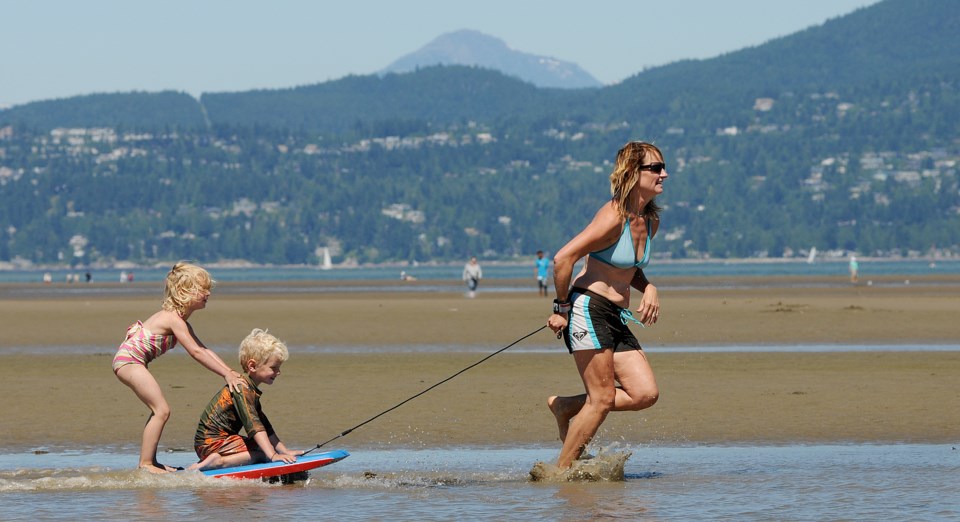Scrambling to plan summer activities for children isn’t the only thing parents should worry about in the months ahead.
It’s also crucial for everyone to know how to survive summer heat, especially for children who may be too carried away to realize how their bodies are handling the sun.
“It’s often because they’re having so much fun and the draw of the activity is too exciting,” said Kristi Douglas, recreation programmer at the Kerrisdale
Community Centre. “Often it’s not their first thought that the sun might be harming them or making them tired or feel ill.”
Family doctor Wi-Guan Lim said more water is always good.
“It really depends how much the kids are running around losing water, but it’s hard to overdose on water,” said Lim.
All community centres and beaches with lifeguards in the city will have posters reminding the public to be “sun smart,” with the following tips provided by the Australian-based SunSmart program.
The five S’ of being sun smart are easy to remember:
- Slip on clothing. Some clothing comes with a UPF (ultraviolet protection factor) rating. Fifteen to 20 is good while 40 to 50 is excellent.
- Slop on sunscreen. Lim says most dermatologists recommend sunscreens with an SPF (sun protection factor) of 30.
- Slap on a hat. Wide brims to shade the head are suggested.
- Seek shade. Don’t forget to take breaks.
- Slide on sunglasses. The Canadian Standards Association recommends pairs with a UV400 rating.
Sean Healy, supervisor of aquatic services at the City of Vancouver, believes even adults often underestimate the sun.
“With fairly high levels of UV radiation, you can get a burn in as little as 15 minutes, so it’s absolutely critical to be sun smart.”
Healy suggested planning outdoor activities keeping the hottest peak hours in mind, usually between 10 a.m. and 2 p.m.
Douglas noted summer programs should always involve some quieter activities in the shade in addition to being directly in the sun. Adults have to take children seriously when they say they getting hot, said Douglas.
“Our staff and leaders have to stay constantly aware how children are doing.”
Parents are often instructed by summer camps and community centres to plan for the heat as it’s important for sun protection items to be packed beforehand.
For those who may become dehydrated on the go, the Tap Map app shows where to find the nearest drinking water fountains in Metro Vancouver. The city will also provide additional temporary fountains July 1 to early fall in specific locations to benefit the elderly, very young and homeless.
There are also many water and spray parks located around the city for children and adults to cool off without needing the ability to swim.
Lim suggested parents of children with ongoing conditions such as asthma or diabetes should talk to their doctors for some general guidelines regarding activities in the sun.
AccuWeather’s 2014 Summer Outlook predicts highs up to 24 degrees in July in Vancouver. Forecasters expect a slightly warmer summer than normal with reduced chances of rainfall.



